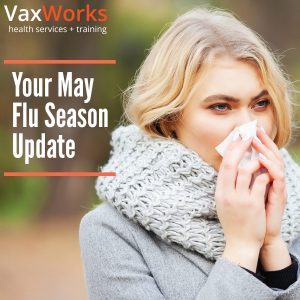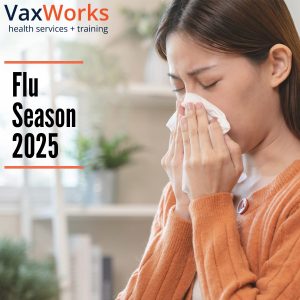Navigating the Seasonal Sniffles: Decoding the Differences Between the Common Cold and the Flu
As the temperature drops and winter sets in, so does the season of sniffles, sneezes, and sore throats. While the common cold and the flu are both respiratory illnesses, they are caused by different viruses and exhibit distinct symptoms. Understanding the disparities between these two ailments can help individuals take appropriate measures for prevention and treatment.
Culprits Behind the Cold and the Flu
The common cold and the flu may share some symptoms, but their root causes differ. The common cold is primarily caused by rhinoviruses, while the influenza virus is responsible for the flu. Both viruses are highly contagious and spread through respiratory droplets produced when an infected person talks, coughs, or sneezes.
Onset and Duration
One key difference between the common cold and the flu lies in their onset and duration. The common cold typically has a gradual onset, with symptoms appearing over several days. In contrast, the flu tends to strike suddenly and intensely. While a cold usually lasts for about a week, the flu may linger for a week or more, causing fatigue and weakness that can persist for several weeks.
Symptoms
Although cold and flu symptoms can overlap, certain signs can help distinguish between the two. Common cold symptoms include a runny or stuffy nose, sneezing, sore throat, and mild cough. On the other hand, the flu often brings about more severe symptoms such as high fever, body aches, chills, fatigue, and a persistent cough.
Fever Distinction
Fever is a hallmark symptom of the flu and is generally rare in adults with the common cold. If you find yourself suddenly experiencing a high fever, it’s more likely the flu than a common cold. Monitoring body temperature can be a useful indicator when trying to discern between the two illnesses.
Complications
While both the common cold and the flu are usually self-limiting and resolve on their own, the flu can sometimes lead to more severe complications. Pneumonia, bronchitis, and sinus infections are potential complications associated with the flu, especially in vulnerable populations such as the elderly, young children, and individuals with weakened immune systems.
Prevention and Treatment
Prevention strategies for both the common cold and the flu involve good hygiene practices, such as frequent handwashing, and avoiding close contact with sick individuals. Treatment for the common cold typically involves rest, hydration, and over-the-counter medications to alleviate symptoms. In the case of the flu, antiviral medications may be prescribed to reduce the severity and duration of symptoms, especially if administered early in the illness.
In the battle against the flu, one of the most potent weapons at our disposal is vaccination. Annual flu vaccines are designed to protect against the strains of influenza virus expected to be prevalent in each season. While the flu shot doesn’t guarantee absolute immunity, it significantly reduces the risk of contracting the virus and can mitigate the severity of symptoms if one does fall ill. Moreover, vaccination is crucial for preventing potential complications, particularly in individuals with compromised immune systems, the elderly, and young children. By getting vaccinated, not only do you safeguard your own health, but you also contribute to the collective effort to create a community shield against the flu, reducing its overall impact. It’s a simple yet powerful step towards a healthier winter season for both individuals and communities alike. Remember, the best offense against the flu is a good defence, and a flu shot is a key player in that defensive lineup.
Conclusion
While the common cold and the flu may share some similarities, understanding their differences is crucial for effective management and prevention. Practicing good hygiene, maintaining a healthy lifestyle, and being aware of the distinctive symptoms of each illness can empower individuals to navigate the winter months with greater resilience against these common respiratory infections. Remember, when in doubt, consulting with a healthcare professional is always a prudent choice for accurate diagnosis and personalised guidance. Stay healthy and resilient against the seasonal sniffles!
We would love to help protect you and your staff against seasonal illness with an onsite workplace flu vaccination clinic. Simply call us on 1300 34 84 22 or request a quote.




